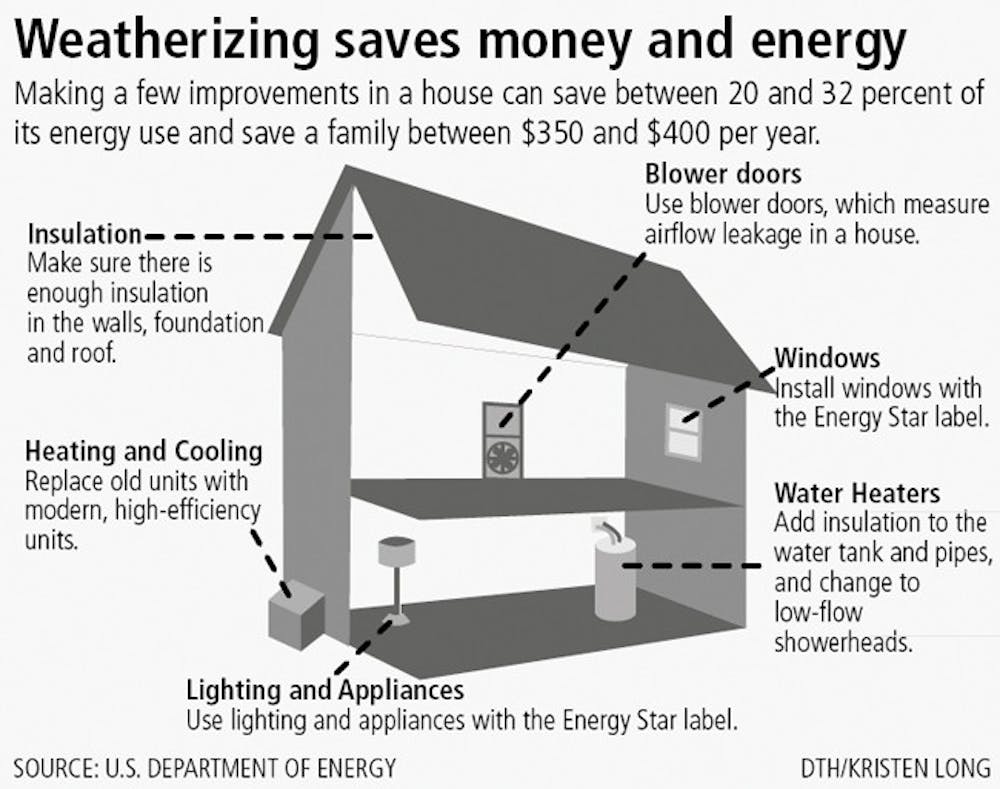Anne Meadors wanted desperately to improve her living space.
She was living in a mobile home with no insulation bad flooring leaky pipes and no employed family members.
Meadors who lives in Chatham county applied for the Weatherization Assistance Program. The initiative works to reduce the burden of energy prices on low-income families by improving the infrastructure of their homes.
Earlier this month the Obama-Biden administration announced that North Carolina will receive $131954536 for the program.
The program makes homes more energy efficient and teaches residents techniques for energy conservation.
Workers from the program put insulation at the top of the house fixed pipes under the floors" put in a fire alarm and carbon monoxide sensor and also installed energy-saving lightbulbs.
""They've done a wonderful job" she said. We are on a fixed income" and it helped us tremendously.""
Douglas Dixon" weatherization director for Joint Orange-Chatham Community Action Inc." said the company is planning to weatherize 58 houses in Orange and Chatham counties by the end of June.
This is a decision that UNC Center for Urban and Regional Studies senior research associate Spencer Cowan said is ""a fabulous investment for the state.""
Weatherization is a cost-effective program" Cowan said because improvements are made only to parts of the house that will save the family more money than they will cost.
Weatherization can save between 20 percent and 32 percent of a house's energy use Cowan said.
On average" homeowners can save $350 to $400 per year by making their houses more energy efficient. The money that would have been spent on energy bills could instead stimulate the local economy.
""If you save that money" you spend it in the community" Cowan said.
The stimulus package increased weatherization funding to $6.2 billion this year, up from $440 million last year, Cowan said.
This could also create jobs for people in North Carolina at a time when unemployment rates are close to 10 percent.
Zack Hamlett, director of the Office of Economic Opportunity, said that the state typically weatherizes about 3,000 homes per year.
Workers perform several diagnostic steps when they audit the house to identify leaks and other information.
Air sealing" insulation of walls attics and floors and sealing ducts are typically things that save the most energy Hamlett said.
Those families are able to save what little funds they do have on their heating and cooling bills" he said.
Meadors said that a year and a half after her house was weatherized, she still follows the simple energy conservation tips that she learned through the program, such as cleaning the lint out of her dryers.
You are not going to believe how much it has helped me"" she said.
But there's a lot of people out here that still need help.""
Contact the State & National Editor at stntdesk@unc.edu.
Program saves energy money



